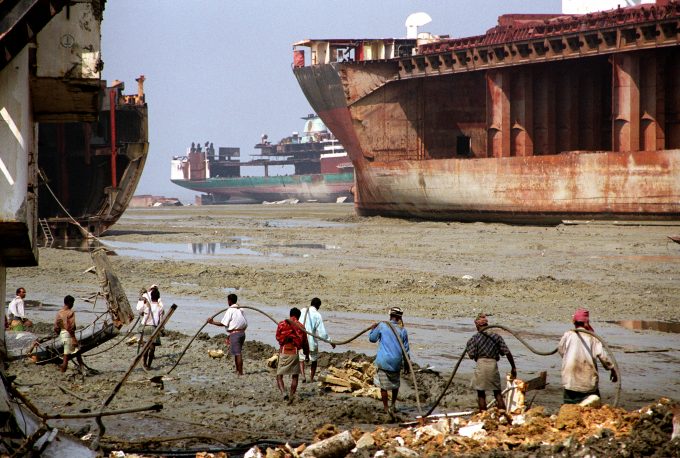Indian coastal freight attracts major carriers, but regional tension disrupts
India’s growing coastal freight demand looks like the next target for foreign container lines amid ...
WTC: RIDE THE WAVEFDX: TOP EXEC OUTPEP: TOP PERFORMER KO: STEADY YIELD AND KEY APPOINTMENTAAPL: SUPPLIER IPOCHRW: SLIGHTLY DOWNBEAT BUT UPSIDE REMAINSDHL: TOP PRIORITIESDHL: SPECULATIVE OCEAN TRADEDHL: CFO REMARKSPLD: BEATING ESTIMATESPLD: TRADING UPDATEBA: TRUMP TRADE
WTC: RIDE THE WAVEFDX: TOP EXEC OUTPEP: TOP PERFORMER KO: STEADY YIELD AND KEY APPOINTMENTAAPL: SUPPLIER IPOCHRW: SLIGHTLY DOWNBEAT BUT UPSIDE REMAINSDHL: TOP PRIORITIESDHL: SPECULATIVE OCEAN TRADEDHL: CFO REMARKSPLD: BEATING ESTIMATESPLD: TRADING UPDATEBA: TRUMP TRADE

There has been a lot of discussion over the past fortnight on Maersk’s decision to send its vessels to the Indian beaches of Alang and elsewhere in the subcontinent for scrapping. The world’s largest shipping line has found itself caught in a corporate social responsibility nightmare as it appeared to renege on its commitments not to sell its ships for scrap in the region – which is characterised by some of the worst working conditions in the world – while at the same time trying to restore a balance sheet decimated by the terrible shipping markets. Many carriers would simply ignore the clamour and continue the time-honoured shipping tradition of blank silence. So Maersk head of sustainability Annette Stube should be praised for this op-ed piece that explains the carrier’s position: “When we decided to collaborate with shipyards in India we were fully aware of the risk of being criticised for the yards not yet fully observing the rules.”


Comment on this article